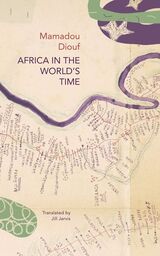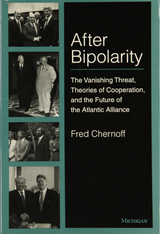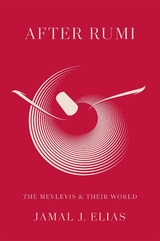
Beginning with an explication of the mass murders and their aftermath, Antonella Salomoni examines the afterlife of a massacre whose physical remains were intentionally hidden. She focuses especially on how the arts—prose, poetry, music, architecture, and painting—shaped a collective narrative that, despite repression, played a crucial role in preserving the history and memory of the genocide.
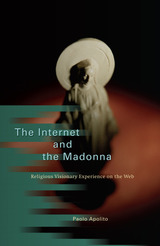
But how has this potent new mix of technology and religiosity changed the way Catholics view their faith? And what challenges do the autonomous qualities of the Internet pose to the broader authority of Catholicism? Does the democratic nature of access to digital technologies constitute a return to a more archaic and mystical form of Catholicism that predates the modernizing reforms of the Second Vatican Council?
In working through these questions, Apolito considers visions of Mary on the Web over the past two decades, revealing a great deal about religion as it is now experienced through new information technologies. The Internet, he explains, has made possible a decentralized community of the devoted, even as it has absorbed God into the shifts and complexities of electronic circuitry. And this profound development in religious life will only accelerate as use of the Internet spreads around the world.
An indispensable guide to the future of Catholicism, The Internet and the Madonna offers a compelling glimpse into the spiritual life of the connected soul.
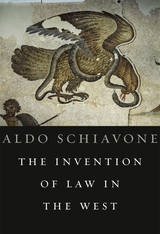
Law is a specific form of social regulation distinct from religion, ethics, and even politics, and endowed with a strong and autonomous rationality. Its invention, a crucial aspect of Western history, took place in ancient Rome. Aldo Schiavone, a world-renowned classicist, reconstructs this development with clear-eyed passion, following its course over the centuries, setting out from the earliest origins and moving up to the threshold of Late Antiquity.
The invention of Western law occurred against the backdrop of the Roman Empire's gradual consolidation—an age of unprecedented accumulation of power which transformed an archaic predisposition to ritual into an unrivaled technology for the control of human dealings. Schiavone offers us a closely reasoned interpretation that returns us to the primal origins of Western legal machinery and the discourse that was constructed around it—formalism, the pretense of neutrality, the relationship with political power. This is a landmark work of scholarship whose influence will be felt by classicists, historians, and legal scholars for decades.
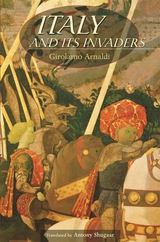
From the earliest times, successive waves of foreign invaders have left their mark on Italy. Beginning with Germanic invasions that undermined the Roman Empire and culminating with the establishment of the modern nation, Girolamo Arnaldi explores the dynamic exchange between outsider and “native,” liberally illustrated with interpretations of the foreigners drawn from a range of sources. A despairing Saint Jerome wrote, of the Sack of Rome by the Visigoths in 410, “My sobs stop me from dictating these words. Behold, the city that conquered the world has been conquered in its turn.” Other Christian authors, however, concluded that the sinning Romans had drawn the wrath of God upon them.
Arnaldi traces the rise of Christianity, which in the transition from Roman to barbarian rule would provide a social bond that endured through centuries of foreign domination. Incursions cemented the separation between north and south: the Frankish conquerors held sway north of Rome, while the Normans settled in the south. In the ninth century, Sicily entered the orbit of the Muslim world when Arab and Berber forces invaded. During the Renaissance, flourishing cities were ravaged by foreign armies—first the French, who during the siege of Naples introduced an epidemic of syphilis, then the Spanish, whose control preserved the country’s religious unity during the Counter-Reformation but also ensured that Italy would lag behind during the Enlightenment.
Accessible and entertaining, this outside-in history of Italy is a telling reminder of the many interwoven strands that make up the fabric of modern Europe.

A close-up portrait of an ordinary existence, Life in Peacetime offers a new look at the postwar era in Italy and the fundamental contradictions of a secure, middle-class life.
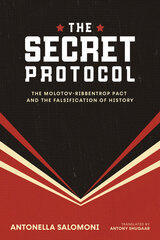
From the moment of the secret protocol’s inception—and the near-instantaneous rumors of its existence—it generated friction and competing narratives. The document became public during the Nuremberg trials, but the USSR declared it a fabrication evidencing the West’s willingness to falsify history. It continues to be relevant to the reconfiguration of history currently advanced by Vladimir Putin. By centering the rumors, accusations, and propaganda the pact precipitated, Salomoni illuminates how political actors can use and abuse history, how they create and disseminate truths and falsehoods, and how they can blur the boundary between facts and fictions even in the glaring face of black-and-white documentation.

A landmark work, this history of medical thought from antiquity through the Middle Ages reconstructs the slow transformations and sudden changes in theory and practice that marked the birth and early development of Western medicine.
Editor Mirko Grmek and his contributors adopt a synthetic, cross-disciplinary approach that conveys a complete and varied vision of our medical past, with attention to cultural, social, and economic forces as they have affected the historical flow of knowledge and the practice of medicine. The various chapters by an international group of scholars, isolate key ideas behind the history of medicine in the West: charity and aid for the sick; medical scholasticism; the concept of disease; intervention with surgery or drugs; and the regimen of health. Throughout, they highlight the links between socioeconomics in general, with a focus on the physician, and the scientific ideas, beliefs, and techniques behind prevailing medical practices. The result is a multifaceted history, unparalleled in its scope, of the myriad influences on the development of medical thought, and of the impact of that thought on other branches of knowledge and on human behavior across the centuries.

In 1918, Woodrow Wilson’s image as leader of the free world and the image of America as dispenser of democracy spread throughout Italy, filling an ideological void after the rout of Caporetto and diverting attention from a hapless ruling class. Wilson’s popularity depended not only on the modernity of his democratic message, but also on a massive propaganda campaign he conducted across Italy, using as conduits the American Red Cross, the YMCA, and the Committee on Public Information.
American popularity, though, did not ensure mutual understanding. The Paris peace negotiations revealed the limits of policies on both sides, illustrated most clearly in Wilson’s disastrous direct appeal to the Italian public. The estranged countries pulled inward, the Americans headed toward isolationism, the Italians toward fascism.
Rossini sets the Italian-American political confrontation within the full context of the two countries’ cultural perceptions of each other, different war experiences, and ideas about participatory democracy and peace. A stellar example of the new international history, this timely book highlights the impact of American ideology and sense of mission in the world.
READERS
Browse our collection.
PUBLISHERS
See BiblioVault's publisher services.
STUDENT SERVICES
Files for college accessibility offices.
UChicago Accessibility Resources
home | accessibility | search | about | contact us
BiblioVault ® 2001 - 2025
The University of Chicago Press


